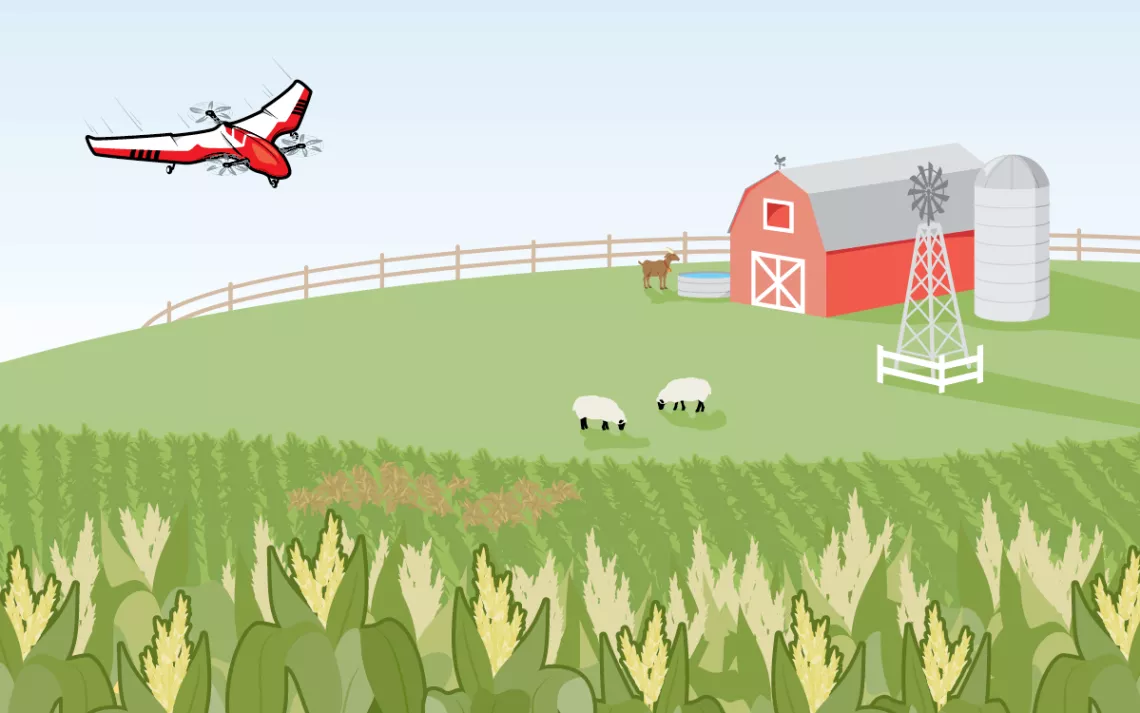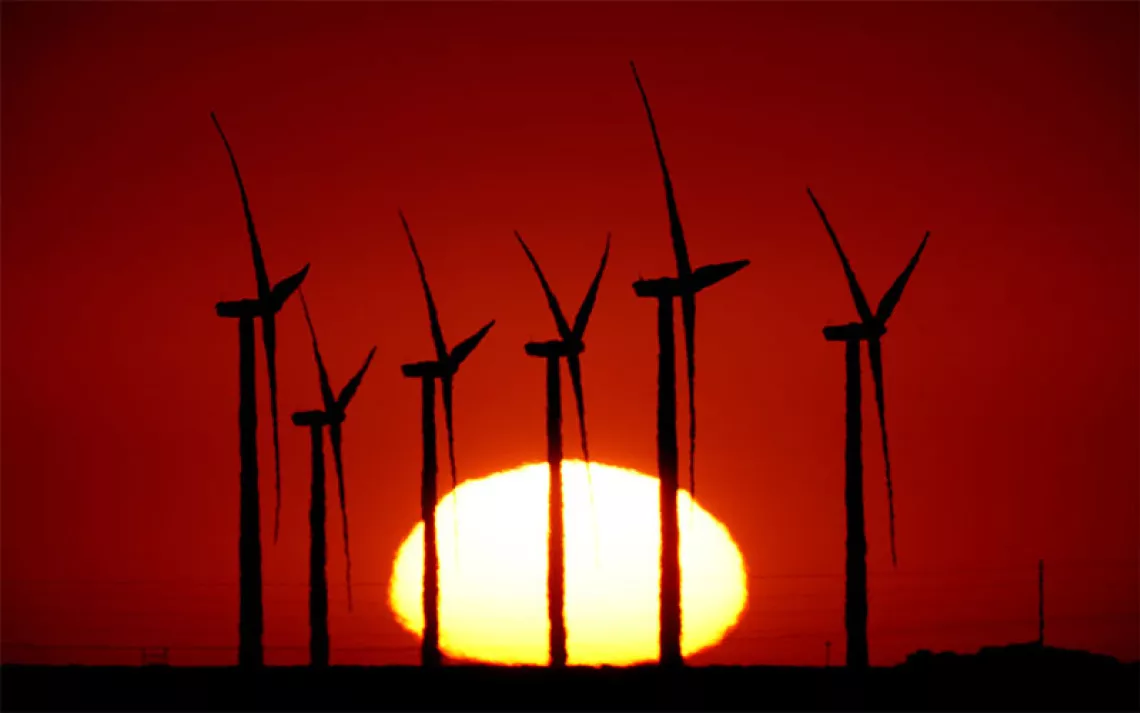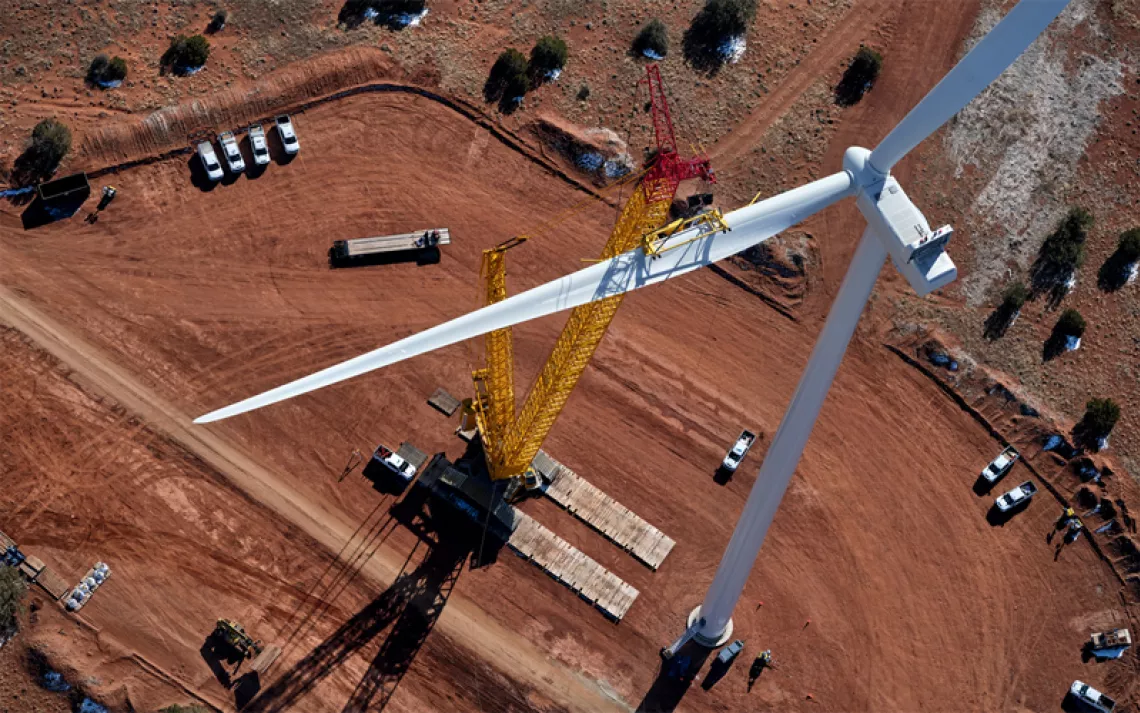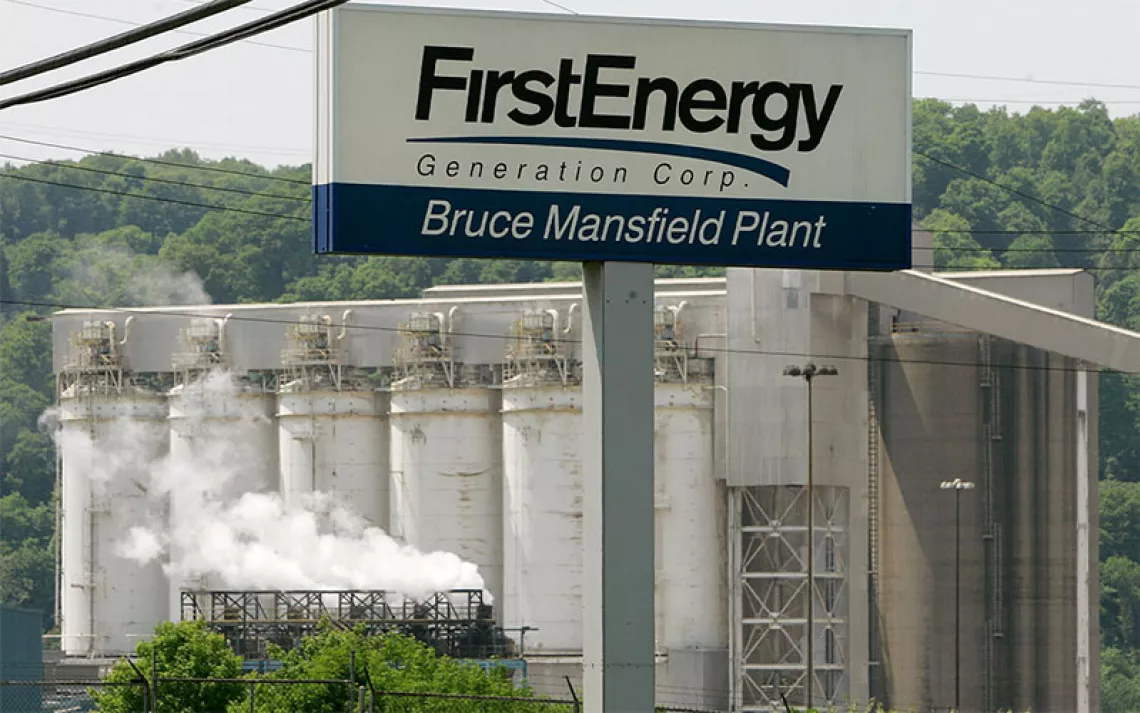High-Tech Farmers Are Adapting to a Changing World
New technologies help farmers adjust for climate change
With climate change shifting weather patterns, farmers have to find innovative ways to adapt to increasingly unpredictable conditions. Many are turning that challenge into an opportunity to use "smart" technology to conserve resources, track seasonal patterns, and analyze the soil conditions of their crops. This new "precision agriculture"—using sensors, drones, satellites, and data analytics—enables them to farm for the future.

Farmers are flying drones from companies such as PrecisionHawk on automated routes over their fields to monitor plant growth, look for disease outbreaks, and assess damage after bad weather. Detecting issues early can enable farmers to make targeted interventions and respond to variable conditions within a single field.

To irrigate effectively, farmers need to know exactly when and where to water. Hortau makes solar-powered soil tension sensors, which reveal both how much moisture is in the soil and how easily plants can extract it. Hortau's system then automatically adjusts irrigation settings based on the readings, reducing water and energy usage and improving yields.

Healthy soil is the foundation of a productive farm. Trace Genomics performs genetic testing on soil samples, looking for both detrimental and beneficial bacteria and fungi, to tell farmers which microbes are living in their fields. Farmers can track how the soil microbiome responds to different practices such as crop rotation and no-till farming.

Companies like aWhere analyze satellite images and use data from weather stations to provide hyperlocal forecasts to farmers. Their predictive analytics help farmers decide when to plant and when to harvest. These companies can also track pest and disease outbreaks and estimate crop yields.
 The Magazine of The Sierra Club
The Magazine of The Sierra Club



